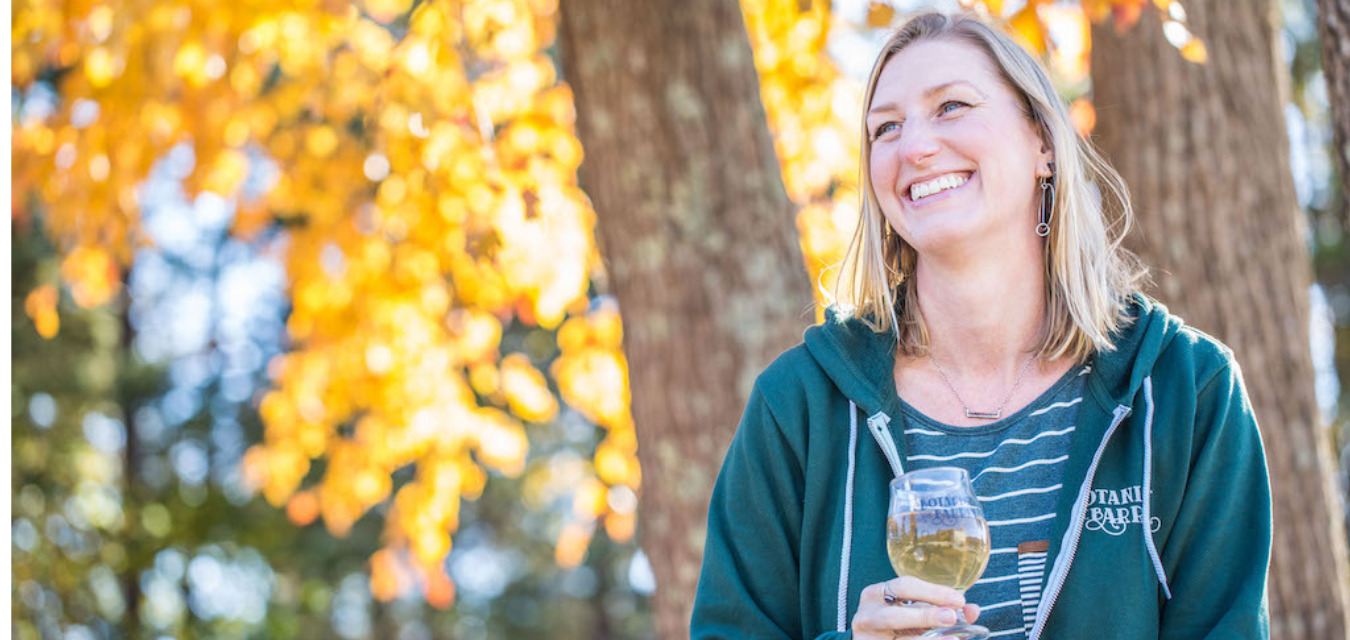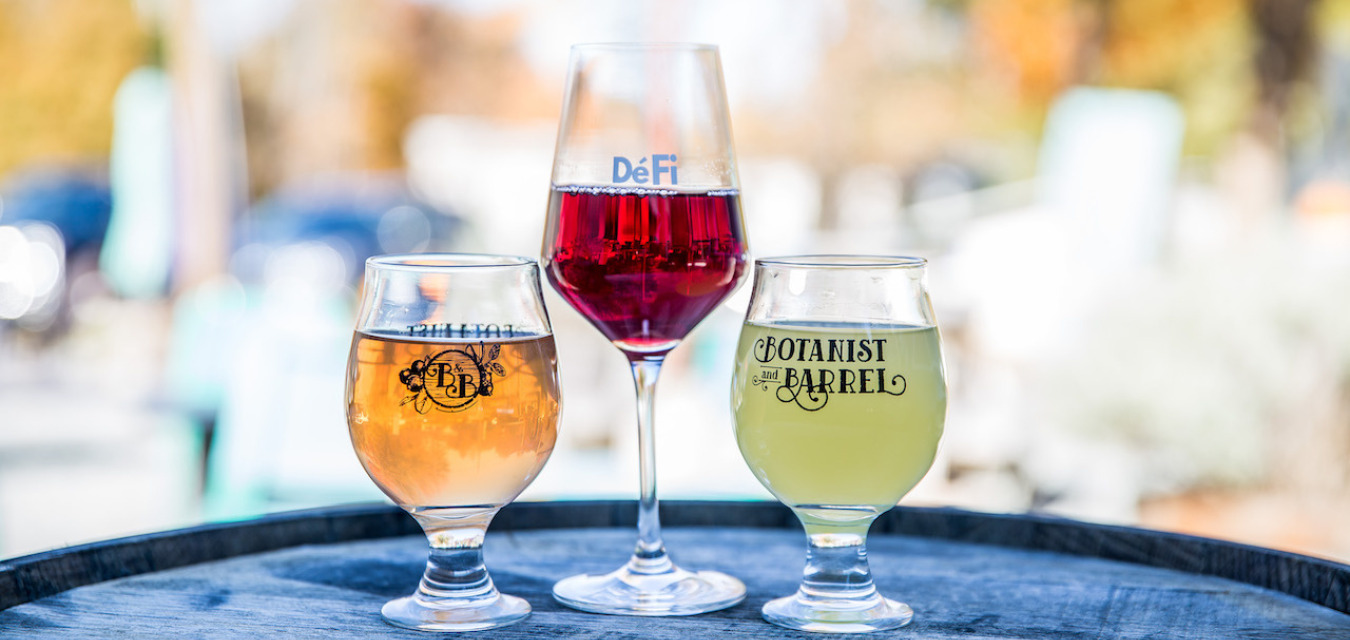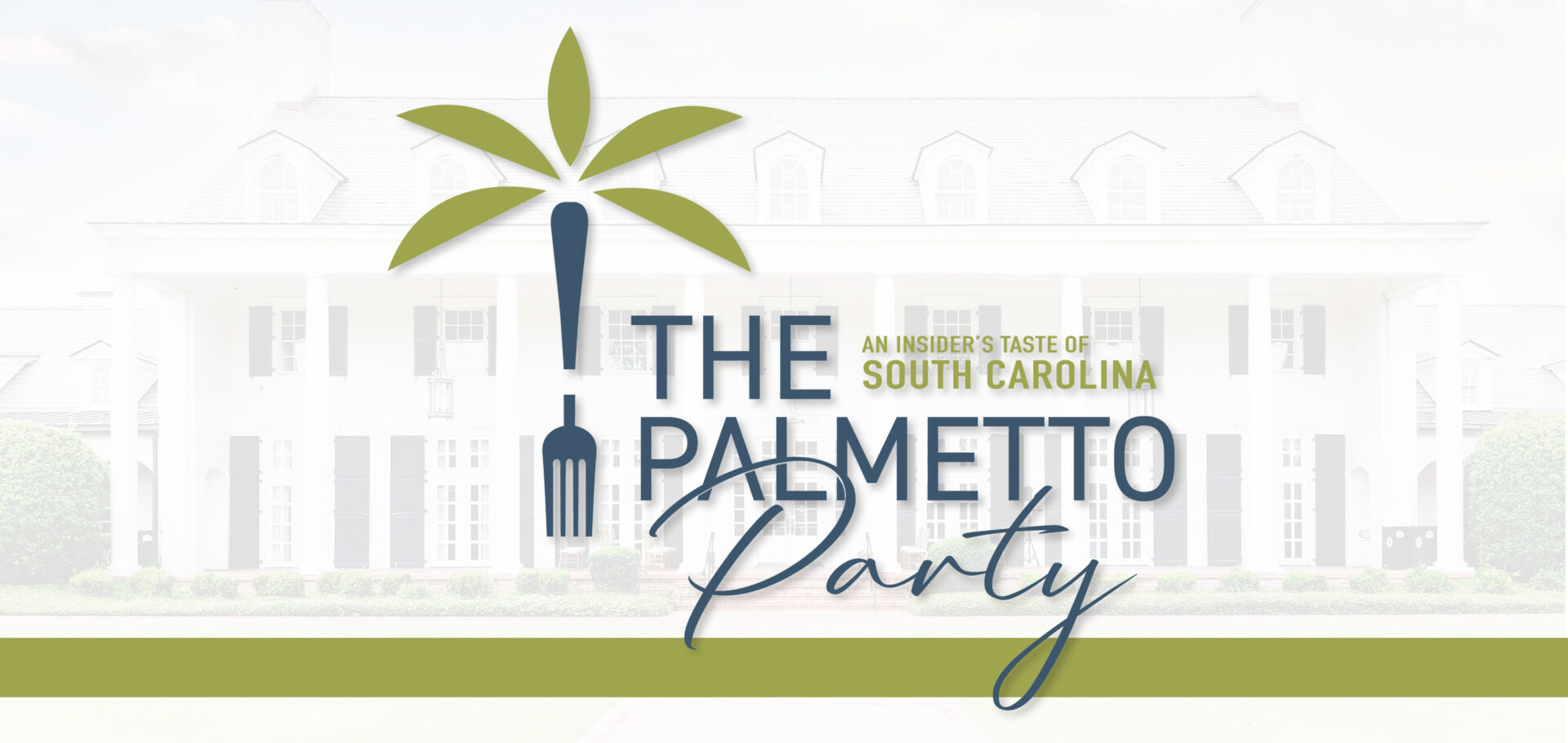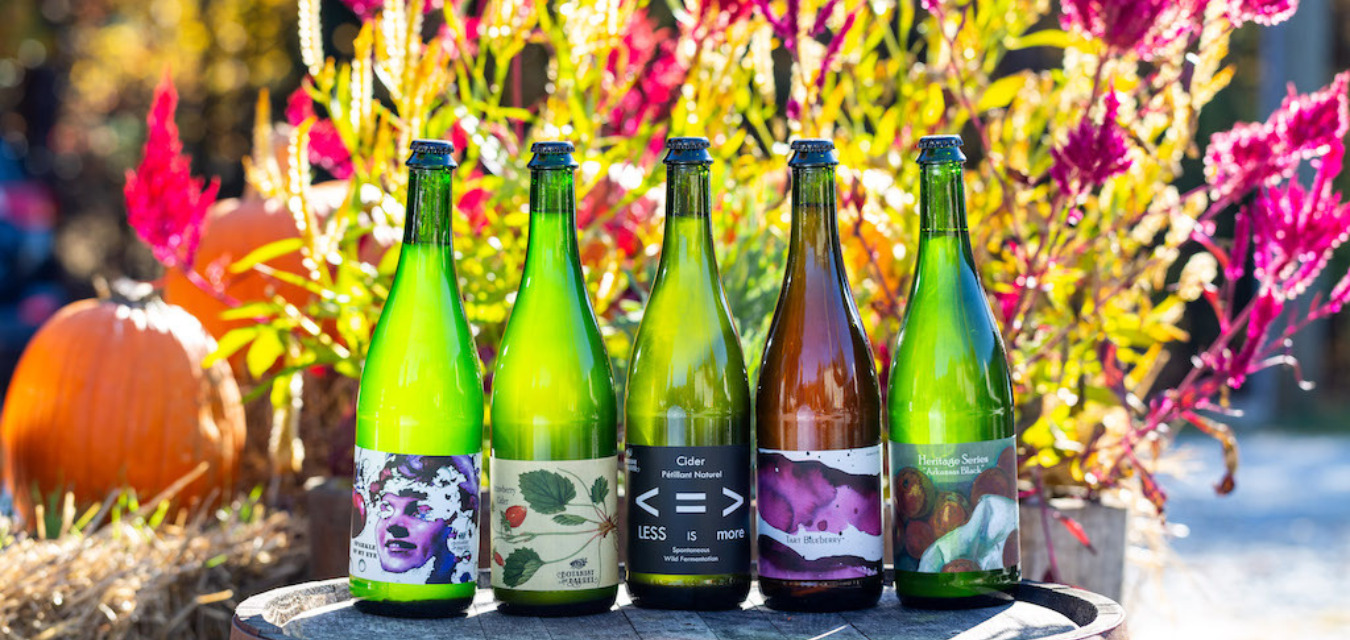Almost nobody makes natural cider in the South. It’s easier—and far more profitable—to follow a more commercialized approach, North Carolina Cider Association president Lyndon Smith explains. “Anybody can take apple juice, pitch it with champagne yeast, filter it, and add passionfruit puree to make a delicious, sugary passionfruit cider,” Smith says.
Some cider makers who do are basically “printing money,” he adds. But Amie Fields isn’t interested in getting rich—at least not at the expense of making hard cider using wild fermentation and local ingredients. Her approach catapulted Botanist & Barrel, her North Carolina cidery and winery, to widespread acclaim for its inventive natural ciders.
Cider, she says, should be approached more like wine. “The main reason we do this is the terroir,” Fields says. “We’re trying to show what the South is in a bottle. The more you manipulate, the less you have a baseline for what it’s actually supposed to taste like.”

Fields launched Botanist & Barrel in 2017, after fifteen years in the wine industry and completing her Level 1 sommelier. She was joined by several family members, including her husband Smith. Since then, Fields became a “pommelier,” the cider equivalent of a sommelier. She is one of the lone people in the world to complete Level 2—the highest level—of the American Cider Association’s pommelier certification.
In early 2021, Fields organized and hosted a “Cider Camp” at Botanist & Barrel in the rural community of Cedar Grove. The one-of-a-kind camp was designed to help the next wave of pommeliers prepare for the first level of the test. The good-natured and driven Fields has quickly become one of natural cider’s biggest champions. She even made her Instagram handle @naturalcider.
Sitting at a worn picnic table alongside Botanist & Barrel’s central North Carolina outpost—on a road dotted with handwritten signs advertising hay, flowers, and okra for sale—Fields explains the ethos behind making cider where the natural ingredients really shine.
“If you pitch yeast and you add sulfites, you’re basically killing everything,” she says, her shoulder-length blond hair falling from underneath a cidery branded trucker hat. “That’s how people are taught to make cider and wine.”
Applying Natural Fermentation at Botanist & Barrel
A burgeoning natural wine movement is pushing back on that trend, but efforts are more nascent in cider. It’s arguably riskier to rely on wild fermentation instead of dumping in globally sourced additives and utilizing a highly commercialized process. But it’s the only way to truly showcase what this region can offer, Fields says. “We’re fighting for cider to be like wine and to have appellations like the American viticulture appellations,” she says. Several of her products make a compelling case, including the Arkansas Black Heritage Series.

By using a single apple varietal sourced from just a few orchards in North Carolina and neighboring Virginia, Botanist & Barrel can offer the kind of specificity commonplace in wine but exceedingly rare in cider. They follow a similar approach with Winesap and Gold Rush apples, as well as blackberries grown in Hendersonville and pears from nearby Efland.
Fields and her team will ferment just about anything, beginning with blueberries from right on their property. Botanist & Barrel is additionally starting to grow some of its own apples and grapes. They’re not the only ones making natural cider nationally, but a hot climate makes much of the South inhospitable to apple orchards, limiting the whole industry.
“It’s a lot safer to make natural cider here,” Fields says. “We have some really great apples here. We get a lot of sun.” That leads to higher alcohol content, often around 8 to 10 percent, which stabilizes the process.
Using wild fermentation also means her ciders aren’t overly sweet, like some of the most commonly available competitors. “I’m so amazed that we’ve done this well and come as far as we’ve come without making one single sweet cider,” Fields says.
Instead, Botanist & Barrel is known for its more experimental beverages, like a recent blueberry wine. It tastes like a cross between a light, high-acid red wine and a sour beer, offering a deceptively sweet nose. Fields likens it to a gamay or Beaujolais.
Botanist & Barrel offers several year-round, flagship items, including a strawberry cider and its dry Less Is More pét-nat. However, it’s the more seasonal, one-off creations like a fizzy and funky 2020 piquette rosé that keep Fields in love with her work. “The easy way is not always the best way,” she says. “We like to have fun.
share
trending content
-
FINAL VOTING for Your Favorite Southern Culinary Town
-
New Myrtle Beach Restaurants Making Waves
-
New Restaurants in Arkansas
-
Shrimp and Grits: A History
by Erin Byers Murray -
Tea Cakes, A Brief History
by TLP Editors
More From Southern Makers
-
A Spirited Approach with Wonderbird Spirits | Listen
-
Kuluntu Bakery Bakes Barriers | Listen
-
Scouting a Good Cup of Coffee | Listen
-
A Hot Take on Southern Chili Lab
-
Zero Proof Living with Sèchey and Target





